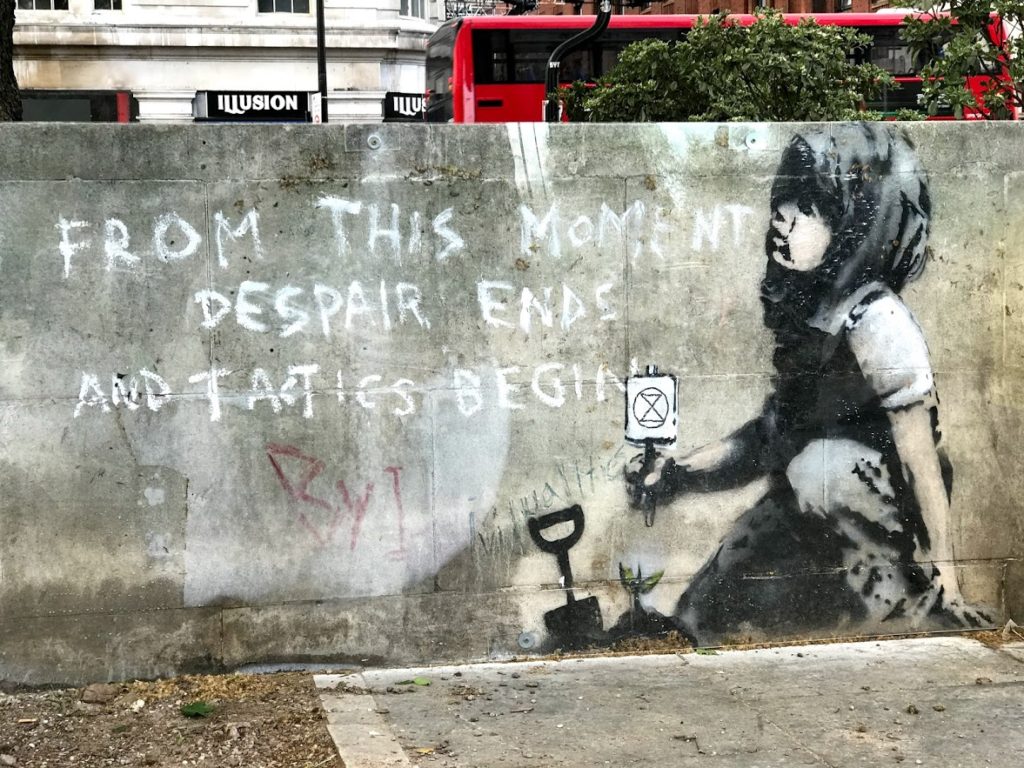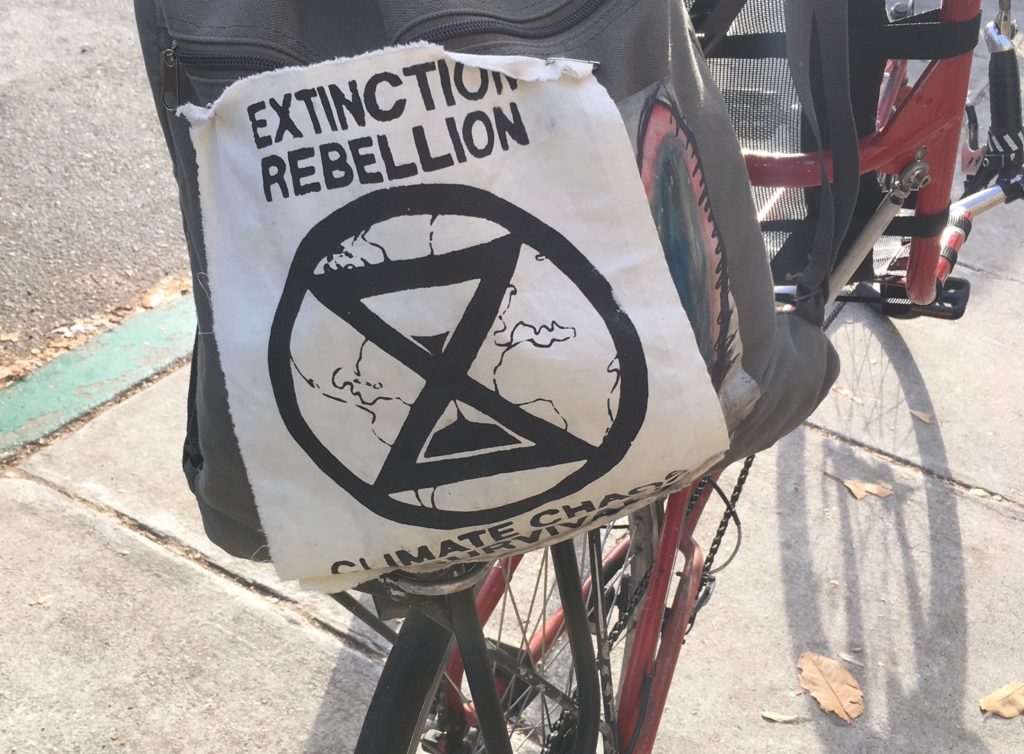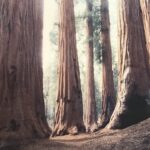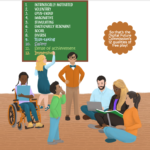
“…I’m saying that democracy is more demanding than you think it is, because you have to do this other thing, too.” We have to protest. But we also have to weave the social fabric that politics is meant to support.
—Oliver Burkeman quoting Robert Talisse in “How the news took over reality,” The Guardian, 3 May 2019
I attended the Teen Wisdom Panel at the David Brower Center in Berkeley a few weeks ago. So when I read this passage about weaving the social fabric that politics is meant to support, I thought of my evening listening to six young women and their mentor Emily Frost honoring and sharing insights from eight years of weaving they were marking with this event. The group first met as girls when they were 10–11-year-olds. With Emily holding space for them and with them, they met for two and a half hours twice a month for the past eight years. That’s some serious weaving.
The teens had worked together in advance to create a series of questions on a range of topics that they all addressed throughout the evening. I took a lot of notes. I was especially struck by how much these weaving spaces are needed—spaces for young people to be held in safety and non-judgment to do the vulnerable work of weaving themselves, authentic & caring relationships, and the world they will inhabit. I was grateful to attend such a rare event featuring teens’ voices.
As one of the young women shared: Young people need “tender reverent space.” Love your Nature founder, Emily Frost, and co-partner Quetzal Francois have launched a donation page here to begin a scholarship fund so they can hold space for more cohorts of young women.
(If you have a tween or teen son, in the future I will write about the book by Norman Fischer, Taking Our Places, about his year of holding space for four young men. Norman’s book has been an inspiration in my own work.)

What I’m reading:
The IPBES Global Assessment Report on Biodiversity and Ecosystem Services, Summary for Policy Makers (39 pages). The Global Assessment Report is “the most comprehensive ever completed. It is the first intergovernmental Report of its kind and builds on the landmark Millennium Ecosystem Assessment of 2005, introducing innovative ways of evaluating evidence.” The full six-chapter Report (including all data) is expected to exceed 1,500 pages and will be published later this year. You will find a wealth of resources here on the media page. Surely you, and probably your kids, have heard the most featured piece of data from the report: 1,000,000 species threatened with extinction. Are you talking about it in your home? How can we hold safe space to open ourselves to talk about such difficult topics? One of the young women, when asked what wisdom she would offer to her younger self, said, “Don’t be afraid of being afraid.” Let’s take that to heart.
“How the news took over reality.” By Oliver Burkeman for The Guardian. I’ve read this long form piece of content twice so far. For those of you who have followed my News Out reports, I recommend you take the 15 minutes to read this. It is a deep and thoughtful positive provocation. Five stars. Read here.
What I’m listening to:
Rewilding the American Child: Setting Kids Free in Today’s Digital World. Commonwealth Club podcast. Speakers are Michael Roberts, Executive Editor, Outside magazine; Florence Williams, Author, The Nature Fix; Nooshin Razani, M.D., Pediatrician and Founder/Director of the Center for Nature and Health, UCSF Benioff Children’s Hospital Oakland. It’s an hour and 14 mins long. I will be listening to it a second time. Some important dialogue about children and nature. I like it because it’s not black and white, and it’s not demonizing “screen time.” Another positive provocation. 5 stars. Listen here.


